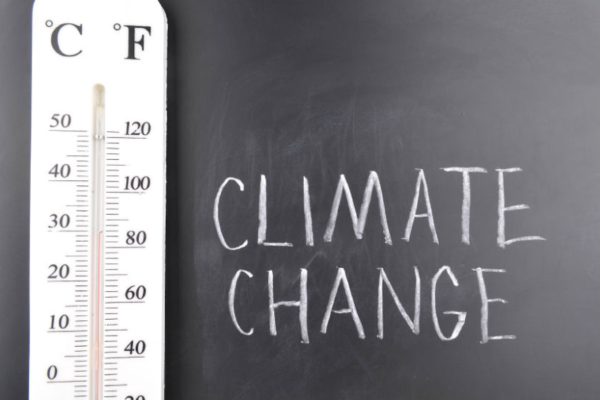While global leaders prepare to trek to Glasgow for COP26—the United Nations Climate Change conference—Asia, Europe, and Britain are experiencing energy crises, largely politically self-inflicted. The public is paying the price.
Meanwhile, COP26 aims to “accelerate action towards the goals of the UN Framework Convention on Climate Change” and the mantra du jour is Net Zero Emissions (NZE). The idea being that if the world could balance human-sourced emissions of greenhouse gases with equivalent emissions removals, warming could stay below 1.5°C.
As the guide for getting to NZE, the International Energy Agency (IEA)—the Paris-based intergovernmental organization often called the “world’s energy watchdog”—published its Roadmap to Net Zero by 2050 (Roadmap) in May, where it describes a “narrow but achievable” path to NZE. The IEA does excellent work, on which I have relied, and has even been accused recently of undermining the “climate change battle.”
The Roadmap assuages those accusers by targeting a “net zero energy system” underpinned by an extremely rapid transition away from carbon-based fuels—for example, an immediate end to new coal, oil and natural gas. Yet, in reality, emissions are the primary issue for climate change, not fuels. Nonetheless, fuels continue to be targeted by public pressure that is starving oil and gas companies of capital, and government policies legislating and subsidizing solar, wind and battery winners.
As global leaders at COP26 prepare to commit trillions of dollars, guided by the Roadmap, it is important to understand how confusing, and even implausible, are some of the Roadmap’s key 2050 assumptions.
Assumption: No new oil and gas fields, and no new coal mines or mine extensions. Unabated coal demand declines by 98%, when in fact coal in Asia continues to expand significantly. Oil consumption declines by 75%, and natural gas by 55%.
Assumption: While population and the global economy continue to grow, global energy use actually declines. This requires an annual rate of energy intensity improvements averaging 4% to 2030, about three times the average rate of the past two decades. Never before have population and economic growth detached from energy consumption. Even in the most remarkable of efficiency assumptions, it is hard to envision.
Assumption: Two-thirds of total energy supply in 2050 will come from wind, solar, bioenergy, geothermal and hydro. Solar photovoltaic capacity increases 2000% and wind increases 1100%. One challenge not often considered for such unprecedented renewables growth is the environmental damage, human rights violations, and national security issues associated with the mining, manufacturing and landfill disposal required.
Assumption: Per capita CO2 emissions in developed economies (~10 tonnes), and in emerging and developing economies (~4 tonnes), decline to zero. In reality, per capita CO2 emissions in emerging and developing nations, which have the largest and fastest growing populations and economies, will continue to rise long before they fall.
Assumption: Investments in end-use energy, energy infrastructure, electricity generation and low emissions fuels rise from just over $1 trillion annually to $4 trillion; cumulatively around $120 trillion in the next 28 years. Staggering.
In reality, there are many roads to NZE. Whatever the ultimate path, it should focus on emissions and reflect the multiple global transitions playing out today, driven by such factors as geopolitics, natural resources, physics, economic growth, reduction of emissions, and protection of land, air and water. In fact emerging economies, represented by the Ministerial Statement of Like Minded Developing Countries, consider NZE to be “anti-equity and against climate justice.”
One thing is clear. Emerging and developing economies will not sacrifice economic growth for emissions reductions. They might, however, consider a range of technology and resource options that focus on emissions reductions, while allowing them to continue to benefit from affordable and reliable coal, oil and natural gas.
Yet many NGOs, academics, activists, and government officials continue to propound Roadmap-type thinking and produce reports with 80% or more solar and wind. Reality can be a harsh teacher as we witness the many self-inflicted global energy crises today, in systems with considerably less than 80%. Weather-dependent wind and solar can’t deliver reliable energy at scale without extensive and expensive backup. Undercapitalized oil and gas companies can’t provide the required backup, causing many countries to reach out to non-neighborly neighbors for natural gas and coal as winter approaches. As a result, energy prices are soaring.
It can be difficult to separate our biases and beliefs from science and economics. But separate we must, lest a climate-based roadmap lose its energy-reality way, hurting the very people it was intended to protect. The road to green should not be paved with bad assumptions.
Scott W. Tinker is Director of the Bureau of Economic Geology, a Professor holding the Allday Endowed Chair at The University of Texas at Austin, and produces global energy documentary films.
A version of this op-ed appeared in The Hill.




